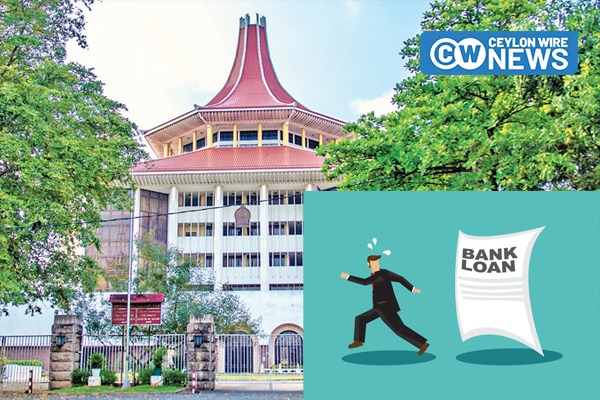The Supreme Court, in a unanimous decision, yesterday (13), has overturned the ruling of the five-Judge Supreme Court Bench in the case of Chelliah v Ramachandran and held that banks are entitled to parate execution concerning any property mortgaged to them.
Parate execution, rooted in Roman Dutch Law, grants licensed commercial banks the authority to sell mortgaged property as collateral without Court intervention.
The Recovery of Loans by Banks (Special Provisions) Act of 1990 expanded this power to all private commercial banks, aiming to enhance the security and flexibility of the banking system by expediting debt recovery and discouraging deliberate defaults.
In the Chelliah v Ramachandran case, a prior decision by five judges of the Supreme Court (four to one) concluded that banks were not entitled to parate execution when the property had been mortgaged by a person other than the actual borrower. This decision significantly prejudiced the banks, causing a halt in the recovery process for the money lent and due to be repaid, leading to a substantial impediment in the circulation of money.
Given these adverse circumstances, Counsel petitioned for a reconsideration of the Chelliah v Ramachandran judgment to a seven-Judge Supreme Court bench. The bench, comprising Justices Buwaneka Aluwihare, Murdu N.B. Fernando, S. Thurairaja, E.A.G.R. Amarasekara, A.H.M.D. Nawaz, Kumudini Wickremasinghe, and Mahinda Samayawardhena, unanimously held that the majority judgment in Chelliah v Ramachandran was incorrect and, therefore, overruled it.
Justice Nawaz and Justice Samayawardene, who wrote lengthy and separate judgments highlighted the rival arguments in the appeal, with the Appellant’s counsel asserting the correctness of the majority decision, while the banks’ counsel, led by Dr. Romesh de Silva, PC, contended that the judgment in was wrong. Dr. De Silva PC emphasised the importance of a stable financial system for economic development, stressing the need for uninterrupted money circulation.
Justice Samayawardhena acknowledged that a stable financial system is crucial for robust economic development, facilitating resource allocation, credit access, risk management, and overall growth. He noted the banks’ role as guardians of public funds within the Sri Lankan financial system, emphasising the necessity of a secure payment and repayment system.
Furthermore, Justice Nawaz asserted that with the Court’s determination that Chelliah Ramachandran perpetuated an incorrect view of parate execution concerning third-party mortgages, the precedent set by Chelliah Ramachandran would no longer be followed.
Justice Nawaz critiqued Chief Justice Sarath N Silva’s statement in Chelliah Ramchandran, asserting that undue focus on the disfavour Roman Dutch Law had for parate execution is akin to looking backward and compared it to the biblical story of Lot’s wife turning into a pillar of salt. He emphasised the need for Sri Lankan jurisprudence to progress and not be bound by historical perspectives. Referring to the SARFAESI Act of India, he argued that Sri Lankan law should align itself with global credit financing practices and not lag behind. Justice Nawaz further stated that time has come to perform the burial rites of the Chelliah- Ramchandran case.
Justice Amarasekara concurred, supporting the final conclusion that, regardless of whether a loan was released in the name of the mortgager, a mortgaged property is subject to parate execution. The unanimous decision overruled the earlier five-judge ruling in Chelliah v Ramachandran, affirming that banks are entitled to parate execution for any property mortgaged to them.(Ceylon Today)









